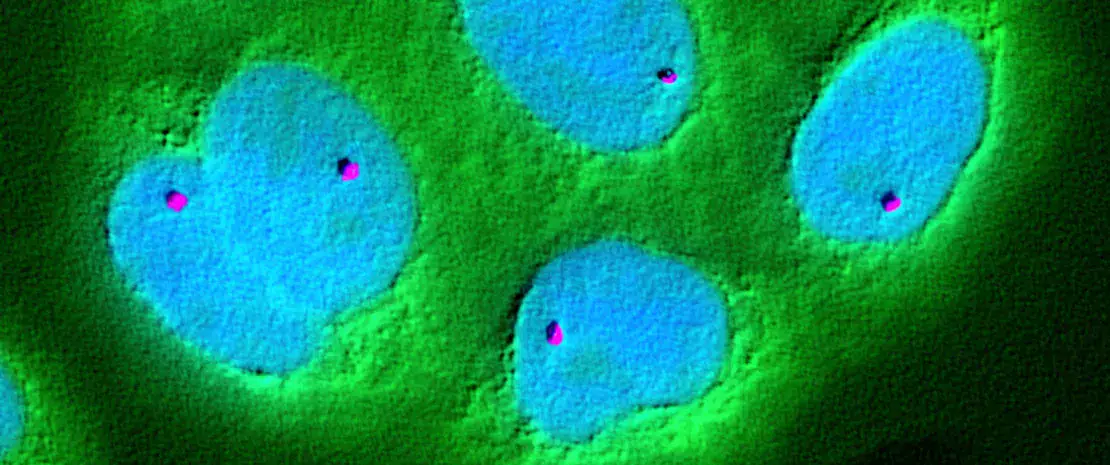The mucin-microbiota pair - central to the development of gastric cancer?
One study suggests that intestinal mucins have a key role in the dysbiosis that sets in as gastric cancer progresses and in its prognosis. The mucins are said to promote the stomach’s colonization by pro-inflammatory oral bacteria.
Lay public section
Find here your dedicated section
Sources
This article is based on scientific information

About this article
Prognosis of gastric cancer is difficult as the absence of symptoms in the initial stages of the disease delays its management. Although genetics and environmental factors play a part, the most common cause is Helicobacter pylori infection, which is thought to promote the subsequent arrival of other bacteria (from the mouth or intestines) involved in the tumor’s growth. The (sidenote: Mucin Glycoproteins that are the main component of mucus, the complex viscoelastic gel that covers the secretory epithelial cells, protecting them against foreign particles and pathogenic organisms. Source : Demouveaux B, Gouyer V, Magnien M, et al. La structure des mucines conditionne les propriétés viscoélastiques des gels de mucus [Gel-forming mucins structure governs mucus gels viscoelasticity]. Med Sci (Paris). 2018 Oct;34(10):806-812. French. ) secreted by the digestive mucus seem to also play a role: specific phenotypes of the mucins (gastric in the early stages and intestinal in the advanced stages) are expressed in adenocarcinomas. Is this enough to suggest that there are mucin-microbiota signatures in gastric adenocarcinomas? This is the hypothesis of one Belgian team in any case.
5th Gastric cancer is the fifth most common cancer type.
4th Gastric cancer is the fourth leading cause of cancer-related deaths worldwide.
A mucin-dependent prognosis
Analysis of the tumor and adjacent non-tumorous tissue in 108 patients who underwent surgery for gastric cancer and biopsies of 20 patients who underwent a gastroscopy due to functional dyspepsia (with no tumor) enabled measurement of the relative expression of gastric mucins (MUC1, MUC5AC and MUC6) and intestinal mucins (MUC2, MUC4 and MUC13). The results show that these three gastric mucins are principally expressed in tumor-free tissue (adjacent or biopsies). Conversely, the overexpression of the intestinal mucin MUC13 proves to be typical of tumors and correlates to a poor prognosis in the development of the cancer.
A mucin-microbiota connection
In terms of bacteria (identified via sequencing of the 16S rRNA gene), several taxa previously associated with gastro-intestinal cancers, in particular Corynebacterium, Fusobacterium, Streptococcus, Porphyromonas and Prevotella, differed significantly between tumorous tissue, adjacent non-cancerous tissue and biopsy tissue. In addition, connections between the bacteria present and the specific phenotype of the mucins in contact with the tumor environment were observed: Helicobacter was more present in tumors without mucins; the taxa (including some that were previously described as oral pathogens) Prevotella, Veillonella and Neisseria seemed to develop more in tumors overexpressing MUC13.
Toward a prognosis for gastric cancer?
Mucins could therefore play a key role in the prognosis of gastric cancer and the formation of the tumor microbiota. An increase in certain oral bacterial taxa associated with an MUC13 overexpression could signal the presence of the disease. Could the mucin-microbiota pair be used as an early marker of the disease? Perhaps, although we should remain cautious for now, as other studies will be required before we can confirm these initial conclusions.
Recommended by our community

"Nice" -@ainguyen6818 (From Biocodex Microbiota Institute on X)
"Good" -@HafizNo52153222 (From Biocodex Microbiota Institute on X)








